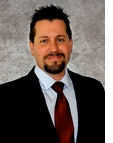
| August 2014 | Past Issues | Printer-Friendly | Advertise | Affiliates Search | Find a Pest Control Operator | PCOC.org |
|
EVP NOTES
AN IMPORTANT LEGISLATIVE STRATEGY We are now in the final weeks of the 2013-2014 Legislative Session. The session actually began in December of 2012 when legislators were sworn in. Similarly, this December, a new crop of legislators will be sworn in for the 2015–2016 Session. This information is important for a number of reasons: First, bills introduced in the first year of a Session can be "carried over" to the second. However, all bills this August, will die unless they pass out of the Legislature and are signed by the Governor. Secondly, this is important, because it highlights that a new crop of legislators will be arriving in Sacramento in December as a result of being elected in November.......so.... Our PAPCO Trustees, in conjunction with our legislative advocacy team, came up with a plan last April based on working with the most friendly bunch of business legislators possible. This fluid plan — yes, it can change during the course of a year as a result of the June primary election results — involves many different moving parts. One of the most important is getting to know our elected representative and, more importantly, educating them on pest control issues and letting them know who to contact if they have any questions...putting names to faces. That is why, over a period of 12 months, we have set up breakfasts, lunches and dinners with state Senators and Assemblypersons, both in Sacramento and in their districts. The criteria used for setting up such events are the strategic importance of each individual to our industry. Thus, we have broken bread with the current Assembly Speaker Toni Atkins (who has also spoken at our Board meeting), the immediate past Assembly Speaker, John Perez (who refers to us as his ‘bug people’), Senator President Darryl Steinberg and the chairs of the Business and Professions Committees in both Houses — where all our bills go. We have also met with legislators who we have identified as upcoming in the leadership process...we normally try to do a couple of month. This is an important way that PCOC creates value to the industry (protecting the Pest Control Industry in California)...but most importantly to YOU, our members. It is unfortunate that many PCOs take advantage of the good work that PCOC does by NOT being members....... A lead-in to please advertise the critical importance of belonging to PCOC to your colleagues as you talk to them...encourage them to attend your local district meeting, and if you sense there is opportunity for us to sign them up. Let Josh Adams know! LEGISLATIVE UPDATE
The 2013-2014 Legislative Session of the California Legislature is in progress. Click here for PCOC's Legislative Agenda. IN THE NEWS

PCOC INSURANCE: BENEFITS OF MEMBERSHIP
In the 1980s
an insurance market crash threatened to put many pest control operators out of
business. PCOC leadership reasoned that there had to be a better way to protect
the pest control industry, so they rose to the challenge and created an
insurance committee and hired key insurance professionals to help solve the
problem. In 1989 the PCOC insurance program launched, offering the most
comprehensive insurance program to the pest control industry at competitive
rates. Many
insurance programs have gaps in their coverages — protections you thought you
had but find out is not there when it comes time to pay a claim.
PESTICIDES ARE CRITICAL TO PROVIDING A SAFE, RELIABLE FOOD SUPPLY
One of the issues we run into as advocates for the pest control industry is emotional-based decision making. Many well-meaning people lose sight of the benefits of pesticide use, especially in agriculture and wish to ban all substances without even looking into scientific research or solutions.
This month, I read an article in the Sacramento Beewritten by Brian R. Leahy, director of the California Department of Pesticide Regulation. He briefly talks about the benefits of pesticide use to the food industry in a thoughtful and well-articulated manner. Excerpt: "Many Californians think of pesticides as something only farmers use. They don’t realize that pesticides touch many other areas in their lives. We all reap the benefits of pesticides. They are part of the complex processes required to deliver safe food, water and health care, yet some consumers are reluctant to accept the risks required to create those benefits. When something seems foreign to us and we don’t understand its benefits, it becomes vulnerable to attack by seemingly well-meaning people and organizations." (Read whole article) NPMA QUALITYPRO OFFERS FLEET MANAGEMENT TOOLBOX
FAIRFAX, VA—The National Pest Management Association’s (NPMA’s) QualityPro has launched the Fleet Management Toolbox. The Pest Management Fleet provides a unique and important opportunity for companies to generate value far beyond the basic purpose of carrying equipment, supplies and pest management technicians to customer sites. From vehicle inspection logs to projected operating cost analysis for today’s most popular fleet vehicles, QualityPro’s Fleet Management Toolbox gives professionals the resources they need to maximize fleet effectiveness. The QualityPro Fleet Management Toolbox is available online for QualityPro member companies at www.qualityprotools.org. PCOC’s PEST ED 2015 – EDUCATIONAL CONFERENCE The dates for the upcoming Pest Ed 2015 have been booked. We are looking at January 13 in Montebello for Southern California and January 15 in Sacramento for Northern California. We will have more information in later NewsBriefs and in upcoming events on the website in the next few months as we continue to set up speakers. Come join us for an all-day event that provides an abundance of continuing education credits, good food, and updates on the latest materials and equipment from some of the top vendors in the state. Etex / Electro-Gun
Termite Control Celebrating 35 years providing a non-chemical termite treatment product to PCO's throughout the USA! Call and find out the benefits of leasing www.etex-ltd.com UPCOMING EVENTS
2014
Sept 26-27 Board of Directors Meeting
Doubletree by Hilton Sonoma
Rohnert Park, Calif.
Flier Hotel Reservations October 7
Tri-District Golf Tournament Sponsored by San Bernardino/ Riverside, Orange County, San Grabriel Valley Districts Coyote Hills Golf Course Fullerton, Calif. Golf Flier Helicopter Ball Drop Flier Dec 12-13 Board of Directors Meeting
Hilton Palm Springs
Palm Springs, Calif. Comings and Goings
Welcome to a new section of Newsbriefs! Here, we will give news from our members: new hires, retirements, etc. If you have some news you would like to share, please send a short sentence or two to breann@pcoc.org. MEMBER NEWS
MEMBER VALUE PROGRAM
PCOC MONTHLY INSURANCE/SAFETY TIP
Using Video in Workers’ Compensation In addition to enhancing security and preventing theft, video surveillance systems can also help employers manage workers’ compensation claims. Cameras Where?
Improving Behavior Organizations that use video surveillance systems have found them useful in disputing fraudulent or exaggerated claims. On the other hand, when a legitimate accident occurs and there are no witnesses, a video recording can help ensure an employee get the benefits he/she needs and deserves. Installing video cameras can do more for employers than just providing evidence for claims. Researchers from Brigham Young University and Massachusetts Institute of Technology have found that theft monitoring information technology products also helped restaurants prevent fraud by changing employee behavior. The take-home? When employees k now they’re being watched, they have less temptation to cheat. This has implications for workers’ compensation claims as well. Employees who know they might be watched are less likely to disregard safety precautions and cut corners on the job. Safety Improvement Video cameras can also bring awareness to safety hazards. By showing events that led to an accident, a video recording can reveal contributing factors. Whenever an accident occurs, safety managers should review any available surveillance recordings to determine if there are any patterns. For example, in a slip-and-fall accident, have other people had near-misses due to wet or slippery floors in that area? For more information, please contact the PCOC Insurance Program department of EPIC (formerly The Leavitt Group) at (877) 860-7378 or, email us @ ProPest@Leavitt.com. NEW MEMBERS
FREQUENTLY REQUESTED INFORMATION
NPMA LOGIN FOR JOINT MEMBERSHIP LOGIN: 313501 PASSWORD: PCOC
Department of Food & Agriculture Department of Pesticide Regulation (DPR)
www.cdpr.ca.gov DPR on Facebook www.facebook.com/capesticideregulation DPR on YouTube (see "playlists" for videos pertaining to new surface water regulations) www.youtube.com/user/californiapesticides DPR on Twitter twitter.com/ca_pesticides DPR LinkedIn www.linkedin.com/company/california-department-of-pesticide-regulation Healthy Schools Act http://apps.cdpr.ca.gov/schoolipm/ Structural Pest Control Board www.pestboard.ca.gov Find Your Legislator |
Pest Control Operators of California |
 |


